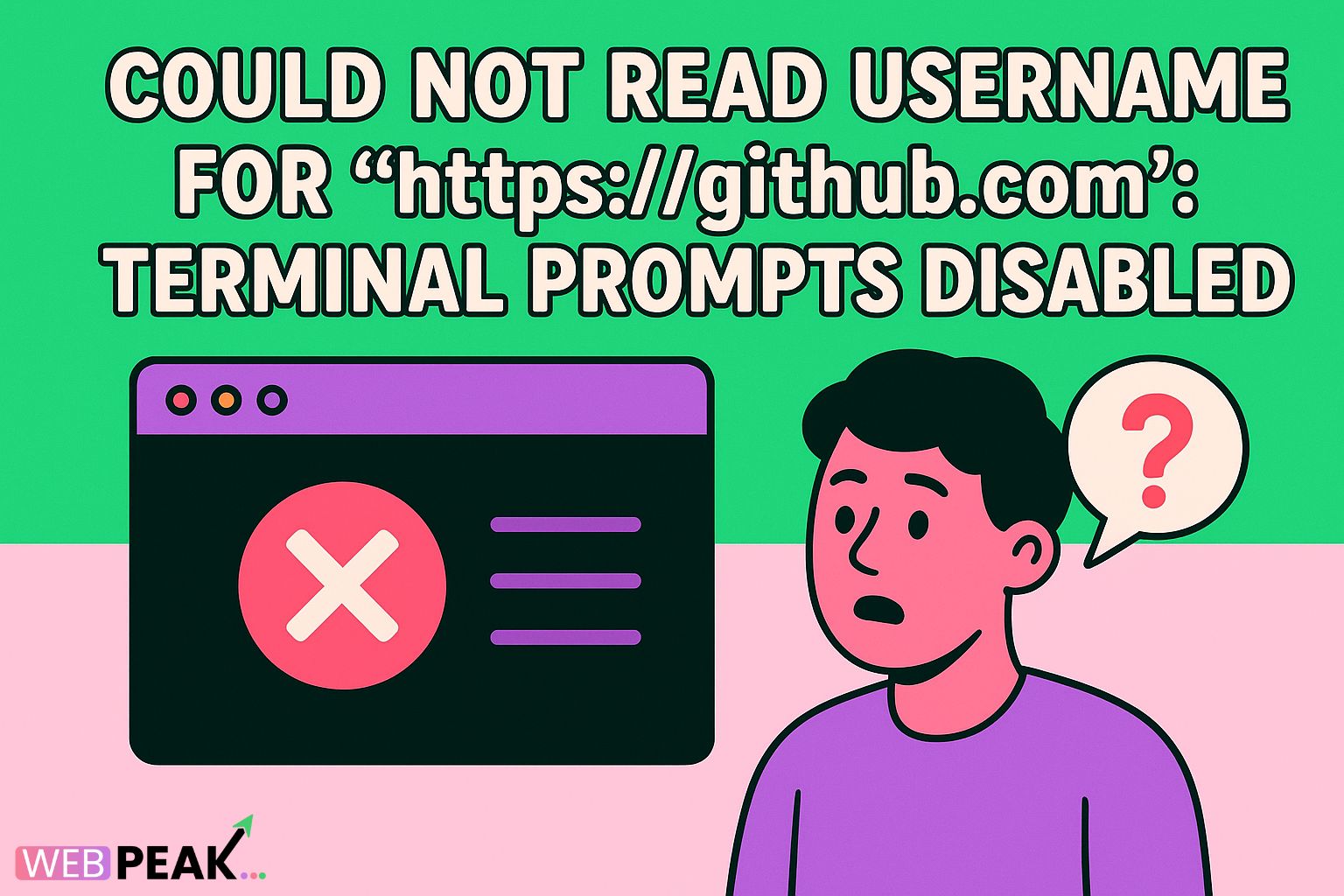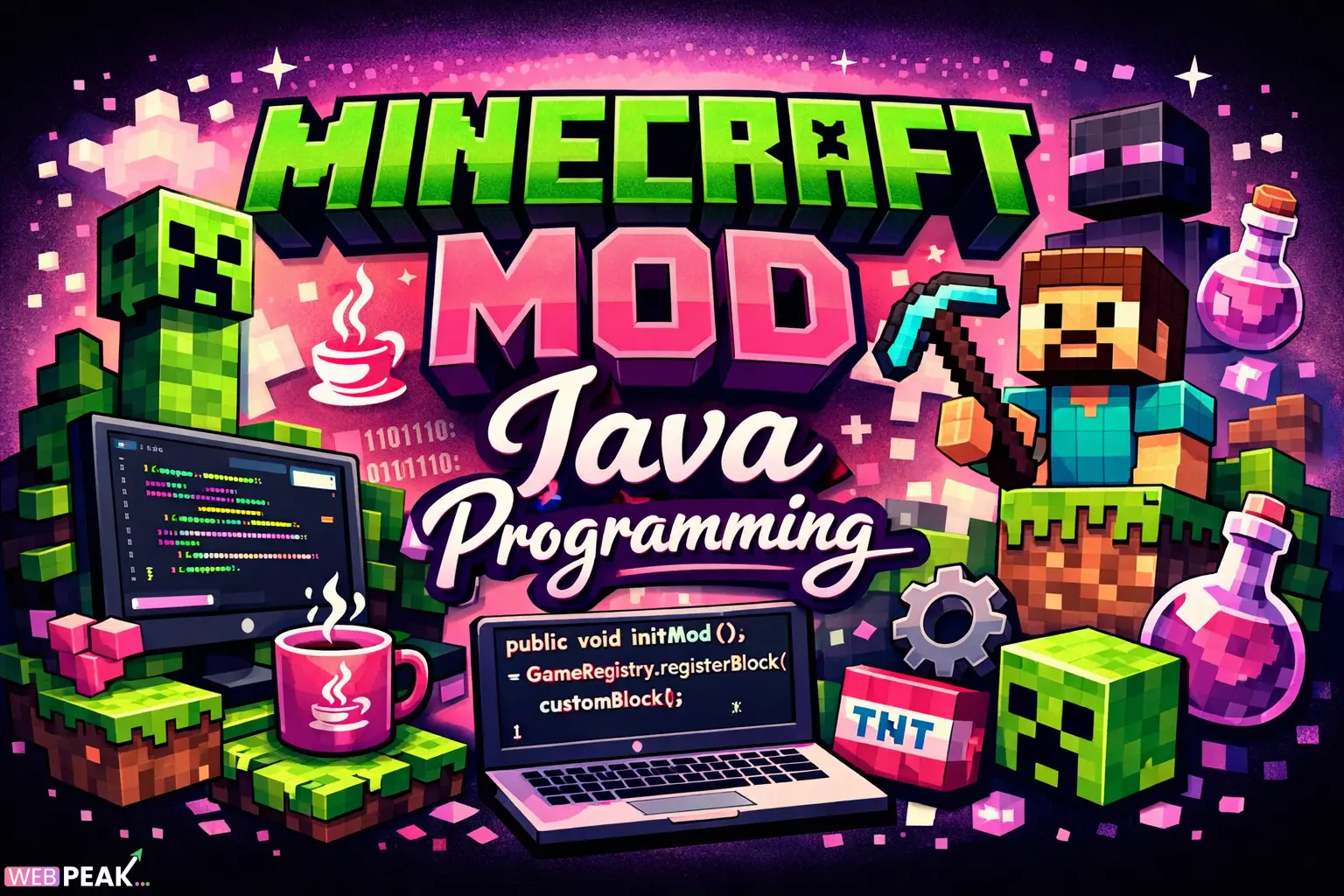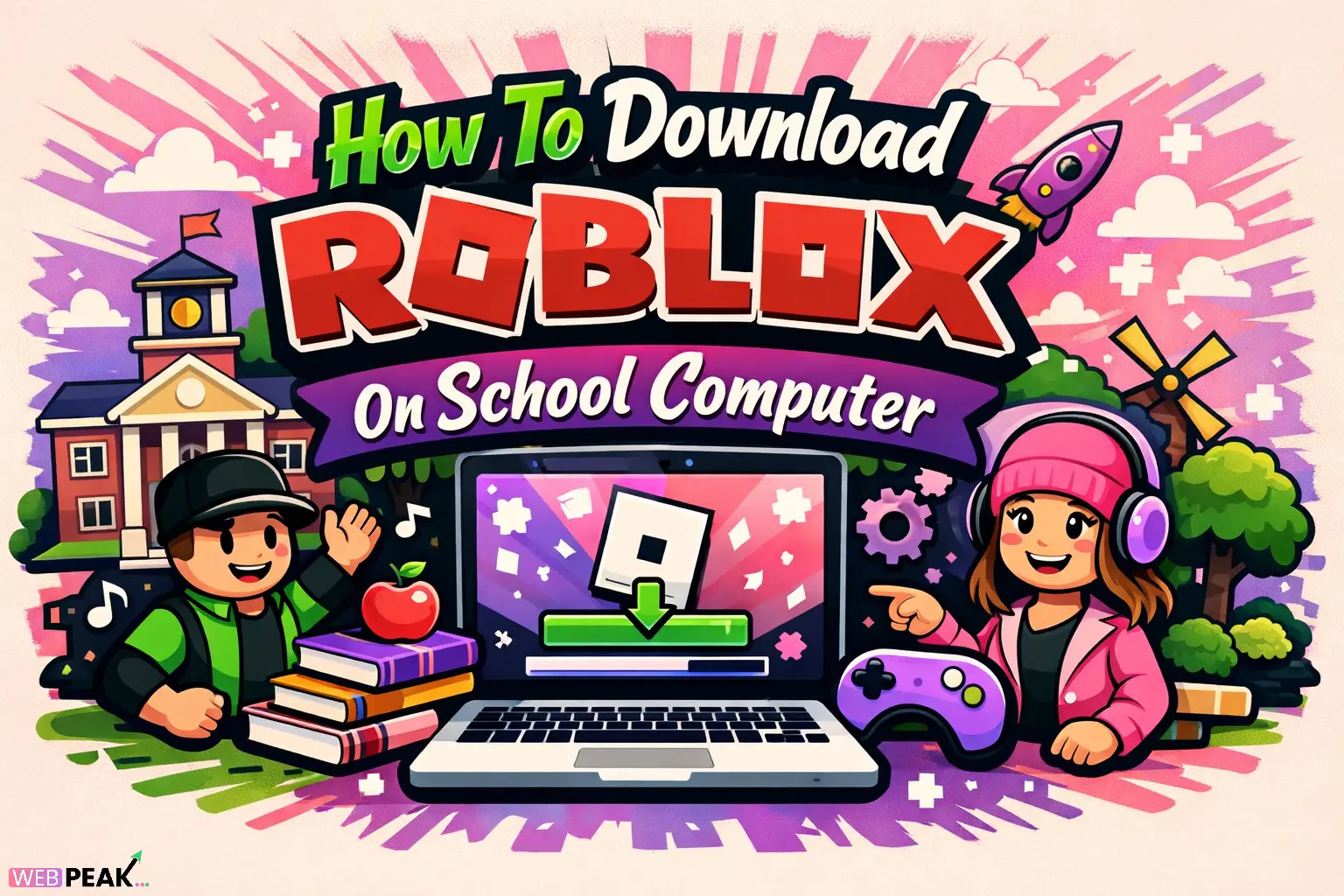Could Not Read Username For 'https://github.com': Terminal Prompts Disabled
The Git error "Could not read username for 'https://github.com': terminal prompts disabled" is one of the most common authentication issues developers encounter when interacting with GitHub. It usually appears when Git tries to request your username or password, but the system (CI/CD environment, script, or restricted shell) does not allow interactive prompts. Understanding why this error occurs and how to fix it is essential for smooth deployments, automation, and secure Git operations. This guide provides an in-depth, beginner-friendly and expert-oriented explanation of the root causes, practical solutions, workflow improvements, and an actionable SEO checklist.
This article is part of an on-site blog for WEBPEAK, a full-service digital marketing company specializing in Web Development, Digital Marketing, and SEO services.
What Does the Error Mean?
The message "Could not read username for 'https://github.com': terminal prompts disabled" indicates that Git expected to prompt the user for authentication information (GitHub username and password), but the environment does not permit interactive input.
Typical situations where this error appears:
- CI/CD pipelines (GitHub Actions, GitLab CI, Jenkins, Bitbucket pipelines)
- Automated scripts running Git commands
- Docker containers
- Servers without interactive terminals
- Using HTTPS authentication without a Git credential manager
- GitHub deprecated password authentication and requires tokens instead
In short: Git wants to prompt you for login credentials, but the system says “No interactive input allowed.” So Git fails.
Why Does This Error Happen?
1. GitHub No Longer Accepts Password-Based Authentication
GitHub removed password-based Git authentication in 2021. You must now use a Personal Access Token (PAT) or SSH keys.
2. The Terminal Environment Blocks Prompts
Automation tools often run in “non-interactive” mode. This means:
- No keyboard input allowed
- No UI for entering credentials
- No approval dialogs
So Git cannot ask for your username or token—causing this error.
3. Missing or Misconfigured Git Credentials
If Git cannot find stored credentials, it tries prompting—which is blocked. This happens when:
- No credential helper is configured
- Wrong credential file permissions
- HTTPS remote uses old username/password instead of token
4. CI/CD Using HTTPS Instead of SSH
CI tools must be authenticated automatically. HTTPS fails because it tries to request a password interactively.
How to Fix “Could Not Read Username For 'https://github.com': Terminal Prompts Disabled”
Below are all working, recommended solutions depending on your environment.
Solution 1: Use a GitHub Personal Access Token (PAT)
This is the most universal solution. Replace your password with a token.
Step-by-Step
1. Generate a Token
Go to GitHub → Settings → Developer Settings → Personal Access Tokens → Fine-grained Tokens.
Select permissions:
- repo → Full control
- workflow → If needed for CI
2. Update Git Remote to Use Token
git remote set-url origin https://YOUR_GITHUB_USERNAME:YOUR_TOKEN@github.com/username/repo.git
This removes the need for prompt-based authentication.
Solution 2: Use SSH Keys (Preferred for CI/CD)
SSH keys are more secure, easier to automate, and recommended for CI/CD.
Steps
ssh-keygen -t ed25519 -C "your_email@example.com"
Add your public key to GitHub → SSH and GPG keys.
Then update your Git remote:
git remote set-url origin git@github.com:username/repo.git
No more HTTPS prompts—SSH handles authentication silently.
Solution 3: Use a Git Credential Helper
If you want to keep using HTTPS locally, store your token using Git’s credential manager.
git config --global credential.helper store
Then push once and enter username + token. Git stores it securely and stops prompting.
Solution 4: Configure CI/CD Authentication Properly
Automation environments require non-interactive auth. Examples below.
GitHub Actions
Use GITHUB_TOKEN:- name: Checkout uses: actions/checkout@v3
GitLab CI
Use CI_JOB_TOKEN:git clone https://gitlab-ci-token:${CI_JOB_TOKEN}@github.com/user/repo.git
Jenkins
Use credentials-binding plugin and environment variables.Solution 5: Edit the Git Config to Disable Prompts
Sometimes Git’s prompt behavior causes the issue. Disable it:
git config --global core.askpass "true"
But note: This only prevents Git from failing due to prompts—it will NOT authenticate you automatically. You still need SSH or tokens.
Solution 6: Remove Cached Invalid Credentials
If Git is using old credentials, clear them:
git credential-cache exitOr delete stored entries manually:
git credential reject
Solution 7: Correct Your Remote URL
A misconfigured Git remote can cause this error. Check it:
git remote -v
If it still uses HTTPS with no token, fix it using one of the methods above.
Walkthrough: Fixing the Error in Different Scenarios
1. Fixing the Error in Local Development
- Switch to SSH
- Or configure stored token via credential helper
- Or update HTTPS URL to include PAT
2. Fixing the Error in Docker
Include SSH keys or environment tokens during build.
3. Fixing the Error in Automation Scripts
Never rely on interactive authentication—hardwire tokens or SSH keys.
SEO Checklist: Optimizing Pages About Git Errors
When writing technical SEO content like this, follow the checklist:
Technical SEO Content Checklist
- Use the main keyword in Title, H1, introduction, and one subheading
- Use semantic variations (GitHub authentication error, Git terminal prompts disabled, Git credentials issue)
- Structure content with logical H2/H3 headings
- Include code examples in readable format
- Write at least 1500 words of rich content
- Keep paragraphs short and readable
- Include actionable steps and tutorials
- Add a FAQ section targeting common Google search queries
- Ensure unique, human-like explanations
- Link relevant internal resources (if applicable)
- Add one authoritative relevant external link (already included: WEBPEAK)
- Insert the keyword naturally—avoid stuffing
Frequently Asked Questions (FAQ)
1. Why does Git say “terminal prompts disabled”?
Because the environment (CI, Docker, script) does not allow Git to display input prompts. Git cannot ask you for your username or token.
2. How do I fix GitHub authentication issues?
Use PAT tokens, SSH keys, or a credential helper. Password authentication no longer works.
3. Does GitHub still support password authentication?
No. GitHub ended password-based Git operations in 2021. You must use SSH keys or a personal access token.
4. How do I use a token instead of a password?
Generate a token in GitHub settings, then update your Git remote or use a credential helper to store it.
5. Is SSH better than HTTPS for GitHub?
Yes—SSH is recommended for automation, CI/CD, and secure development workflows.
6. How do I fix this error in CI/CD pipelines?
Use environment variables, tokens, or SSH keys. Ensure no commands require interactive user input.
7. Why does Git ask for a username even after setting a token?
Your remote is still configured to HTTPS. Update it to SSH or include credentials in the URL.
Conclusion
The Git error "Could not read username for 'https://github.com': terminal prompts disabled" is straightforward to fix once you understand why it happens. Whether you're working locally, running automated scripts, or deploying via CI/CD, your goal is to avoid interactive authentication. Using GitHub personal access tokens, SSH keys, or properly configured credential helpers ensures smooth, prompt-free Git operations.
By applying the solutions in this guide, you can eliminate this error and build more reliable development workflows across all environments.





